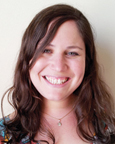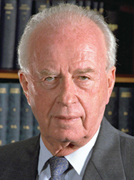 When Prime Minister Yitzhak Rabin was assassinated, I was there. I remember that moment vividly to this day. It was Nov. 4, 1995. I was with my family and a full bus from our kibbutz. The energy was high, the crowd was huge and it felt like change was in the air. And then, three shots were fired … three shots that changed history for the State of Israel. When Israelis voted the Labor Party into government in June 1992, with Yitzhak Rabin at its helm, they knew well what they were getting. Here was a man who had been in public life for more than 40 years. When he became prime minister for the first time in 1974, he had been the first native-born Israeli (sabra) to attain the post. His astonishingly successful military record, no-nonsense speaking style, gravelly voice and oddly shy little smile were as familiar to Israelis as would be the mannerisms of a favorite uncle. Yet, in a short span, they would meet a new Yitzhak Rabin — a great war commander and implacable foe of the PLO transformed into a soldier for peace, and a Nobel laureate. And so, in November 1995, when this first-ever sabra/prime minister became the first-ever Israeli prime minister to be assassinated in office — and by a young Jew, no less — Israelis came to know with horror and grief what they had lost.Rabin’s assassination took place at a big peace rally, supporting him and the peace process. Everyone I was with was excited about this rally. Things in Israel were changing and a new era was about to begin … my parents were not about to let my siblings and I miss that. I was only 11 years old at the time, and didn’t understand much of what was going on around me. Still, it was educational. Taking part in such a historic event definitely had an impact on a girl like me.
When Prime Minister Yitzhak Rabin was assassinated, I was there. I remember that moment vividly to this day. It was Nov. 4, 1995. I was with my family and a full bus from our kibbutz. The energy was high, the crowd was huge and it felt like change was in the air. And then, three shots were fired … three shots that changed history for the State of Israel. When Israelis voted the Labor Party into government in June 1992, with Yitzhak Rabin at its helm, they knew well what they were getting. Here was a man who had been in public life for more than 40 years. When he became prime minister for the first time in 1974, he had been the first native-born Israeli (sabra) to attain the post. His astonishingly successful military record, no-nonsense speaking style, gravelly voice and oddly shy little smile were as familiar to Israelis as would be the mannerisms of a favorite uncle. Yet, in a short span, they would meet a new Yitzhak Rabin — a great war commander and implacable foe of the PLO transformed into a soldier for peace, and a Nobel laureate. And so, in November 1995, when this first-ever sabra/prime minister became the first-ever Israeli prime minister to be assassinated in office — and by a young Jew, no less — Israelis came to know with horror and grief what they had lost.Rabin’s assassination took place at a big peace rally, supporting him and the peace process. Everyone I was with was excited about this rally. Things in Israel were changing and a new era was about to begin … my parents were not about to let my siblings and I miss that. I was only 11 years old at the time, and didn’t understand much of what was going on around me. Still, it was educational. Taking part in such a historic event definitely had an impact on a girl like me.
The rally was moving and powerful, and ended late that Saturday night. After everyone started leaving the town square, we stood across the road from the crowd waiting for Rabin. It was then that the shots went off, three in a row. My father grabbed my hand and we started running away from the area. I looked back and saw that same crowd running toward us like a herd.
in a row. My father grabbed my hand and we started running away from the area. I looked back and saw that same crowd running toward us like a herd.
We ran for a while and at the time I didn’t understand what had happened. The shots fired sounded like a tire exploding to me. Eventually we got to the bus that took us back to the Kibbutz and then things fell into place. Rumors were going around between the adults about what had happened and somewhere along the coastline, on the way back home, the radio report came saying Yitzhak Rabin had died. The bus was quiet. I remember seeing grownup men and women’s sad, devastated, teary eyes. People were crying as if they knew Rabin personally. But they were also crying for the chance that was taken, for the violent way democracy and trust were harmed.That day changed history and it had a deep impact upon many Israelis, myself included. Grief from the assassination led many Israelis to take a stand, to acknowledge that their apathy toward society cannot exist anymore. People felt the assassination of Rabin was their “wake-up call” to an active society. I made my choice: I chose to be active, to voice my opinions about society and about my community. I chose to make it better. Many Israelis chose to do the same.
Democracy allowed us to be active and make a change in our life for a better future. I wish more people would take that chance and make a difference in their country and their community. I hope we will never need a wake-up call to be active, but just go out and have an impact on our surroundings. I believe in making your own life as you wish it would be, and like Rabin chose the way of peace after years of experience in war, we can choose to make a difference and be active in our lives.


